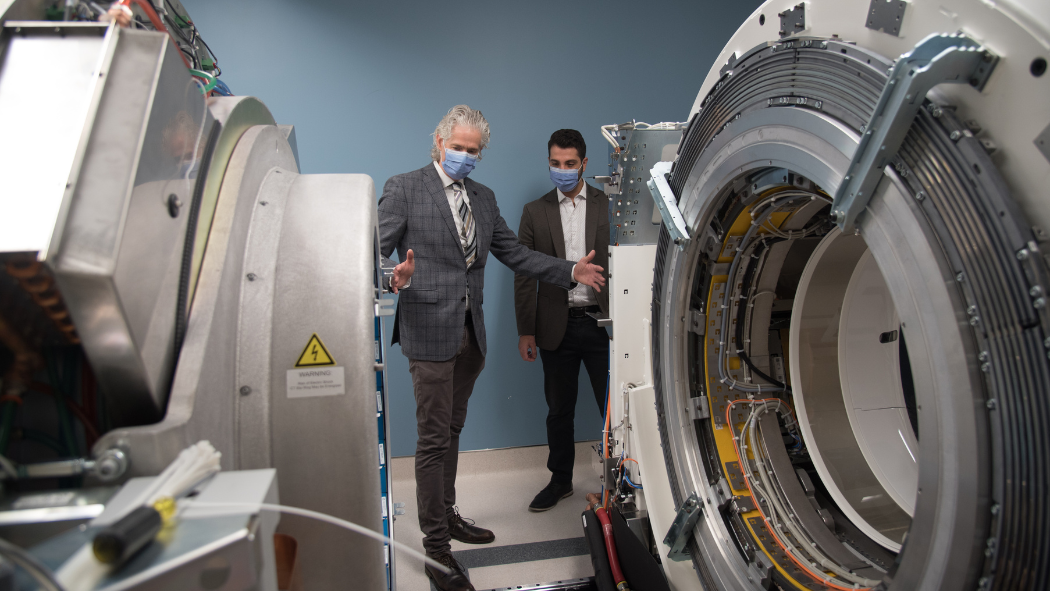
October 5, 2022
London Health Sciences Centre (LHSC) has acquired the highest-resolution digital Positron Emission Tomography – Computed Tomography (PET/CT) scan, a leading-edge diagnostic tool so advanced it has the ability to detect the presence of cancer in its earliest stages and has the capacity to perform more than 6,000 scans per year.
Funded in part by the London Health Sciences Foundation and Ontario Health/Cancer Care Ontario, this tool can detect and diagnose many forms of cancer as well as cardiovascular and neurologic diseases in adults and children. The machine will be operational in late October and has the capacity to scan up to 25 patients a day improving access for patients within our region.
“As a regional cancer centre, this invaluable resource will make a significant difference to patients in so many ways and help promote important research,” said Dr. Jonathan Romsa, Chief, Division of Nuclear Medicine at LHSC. “This will greatly expand imaging capacity within London and our broader region, improving wait times, and enabling care closer to home for many patients who previously had to travel greater distances. This will be helpful especially for paediatric patients who have up until now, would often be referred for scans outside the region.”
The machine is able to detect disease at a molecular level, can monitor response to treatments, and increase the effectiveness of radiation therapy. The unit combines both a PET and CT scan, which maps out tracers in the body that show which cells are overactive, while combining data from x-rays to produce a detailed three-dimensional image of structures inside the body.
This is the first PET/CT machine at LHSC and while improved access to patient care will be the primary focus, it will also support a robust academic program that includes clinical practice, education and research to fuel future advancements.
“Along with advancements to our imaging capabilities this system will enhance collaboration across medical disciplines to promote academic and clinical research activities that will lead to improved health outcomes for our patients,” said Stephen Nelli, Coordinator of Nuclear Medicine at LHSC. “This state-of-the-art technology will help physicians locate disease early while decreasing imaging time and radiation dose.”